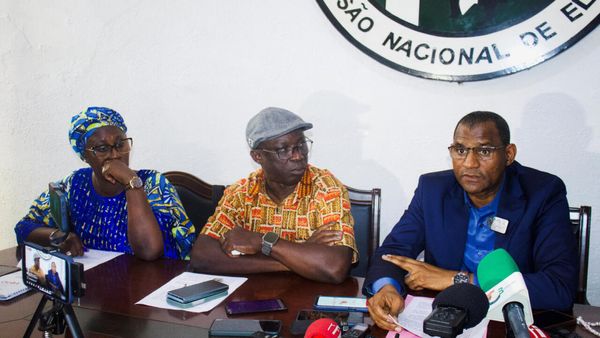This Supreme Court hasn’t exactly been shy about issuing extremely conservative rulings. Even so, one pending case stands out for its combination of dangerous and unhinged. That case is Moore v. Harper, and involves the so-called independent state legislature theory. The bad news is that Wednesday’s oral argument underscored how outrageous the argument for it is. The good (or at least, less-bad) news is that it seems most of the justices want to reject it.
The independent state legislature theory is the product of an opportunistic, hyper-literal interpretation of the U.S. Constitution. According to Article I, section 4 of the U.S. Constitution, “The Times, Places and Manner of holding Elections for Senators and Representatives, shall be prescribed in each State by the Legislature thereof.” The theory asserts that this means a state legislature can violate its state’s constitution in congressional elections, and that the state’s supreme court may not stand in the way because the legislature must have the final word.
In a second, I’ll tell you why this is unhinged. But first, let me tell you why it’s dangerous. If the state legislature can violate its own state constitution in federal congressional elections, logically it could do the same in a presidential election. Under their bad-faith arguments, a state legislature could overthrow the people’s vote for president — and the state’s supreme court would have no ability to block it. Hence, a rogue state legislature could determine the outcome of a presidential election. Presumably, they are also counting on the U.S. Supreme Court to stand by and let it happen.
Justice Elena Kagan put it simply, if a little too politely. The theory, she said, might allow the legislatures to insert themselves … in the certification of elections and the way election results are calculated. So — and in all these ways, I think what might strike a person is that this is a proposal that gets rid of the normal checks and balances on the way big governmental decisions are made in this country. And you might think that it gets rid of all those checks and balances at exactly the time when they are needed most.
Now for the unhinged part. Leave aside that no one so much as mentioned this independent state legislature notion at the nation’s founding. Leave aside that the language of the U.S. Constitution just carried forward the language of the Articles of Confederation. The basic issue is that, to the founders and to us, state legislatures only exist as creatures of the state constitutions that bring them into existence.
According to the American theory of government, the people are sovereign. The people create a constitution. That constitution creates the legislature. It follows that the state constitution controls everything the legislature may do. And since state supreme courts interpret state constitutions, they get to say whether state legislatures have violated them.
Here's Justice Ketanji Brown Jackson on the subject, crystal clear: The U.S. Constitution is “not giving just anybody in the state that right” to choose the time, place and manner of elections. “They’re giving [it to] somebody called the legislature and, in order for us to have a thing called the legislature, we have to look at the state constitution to determine … what that entity's powers are, how they can be exercised.”
Even the lawyer for the independent state legislature theory admitted at oral argument that the words “state legislature” would have to include the governor, who can veto whatever the state legislature does. Why? Because the veto power is written into the state constitution — the very document the theory’s proponents claim is irrelevant.
Chief Justice John Roberts pressed this point early on. In response, the lawyer claimed there was a difference between “procedural” limitations, like the veto, and what he called “substantive” constitutional rules, like a state constitutional rule against partisan gerrymandering.
Justice Amy Coney Barrett pounced on this proposed distinction. “As a former civil procedure teacher,” she said, “I can tell you [that] is a hard line to draw and a hard line to teach students.” This was a nice way of saying the lawyer’s distinction was junk.
Add Roberts and Barrett to the liberals, and you’ve got five votes — enough to block this unhinged theory from becoming dangerous law. As a bonus, Justice Brett Kavanaugh also seemed inclined to reject the most extreme part of the argument, which he noted went beyond former Chief Justice William Rehnquist’s opinion in Bush v. Gore. When something is worse than Bush v. Gore, it’s really bad.
It’s alarming that this insane theory has made it this far, but we can all breathe a tiny bit easier knowing the odds are against it. That counts as good news — or at least, less-bad news.
____
ABOUT THE WRITER
Noah Feldman is a Bloomberg Opinion columnist. A professor of law at Harvard University, he is author, most recently, of “The Broken Constitution: Lincoln, Slavery and the Refounding of America.”
This column does not necessarily reflect the opinion of the editorial board or Bloomberg LP and its owners.







